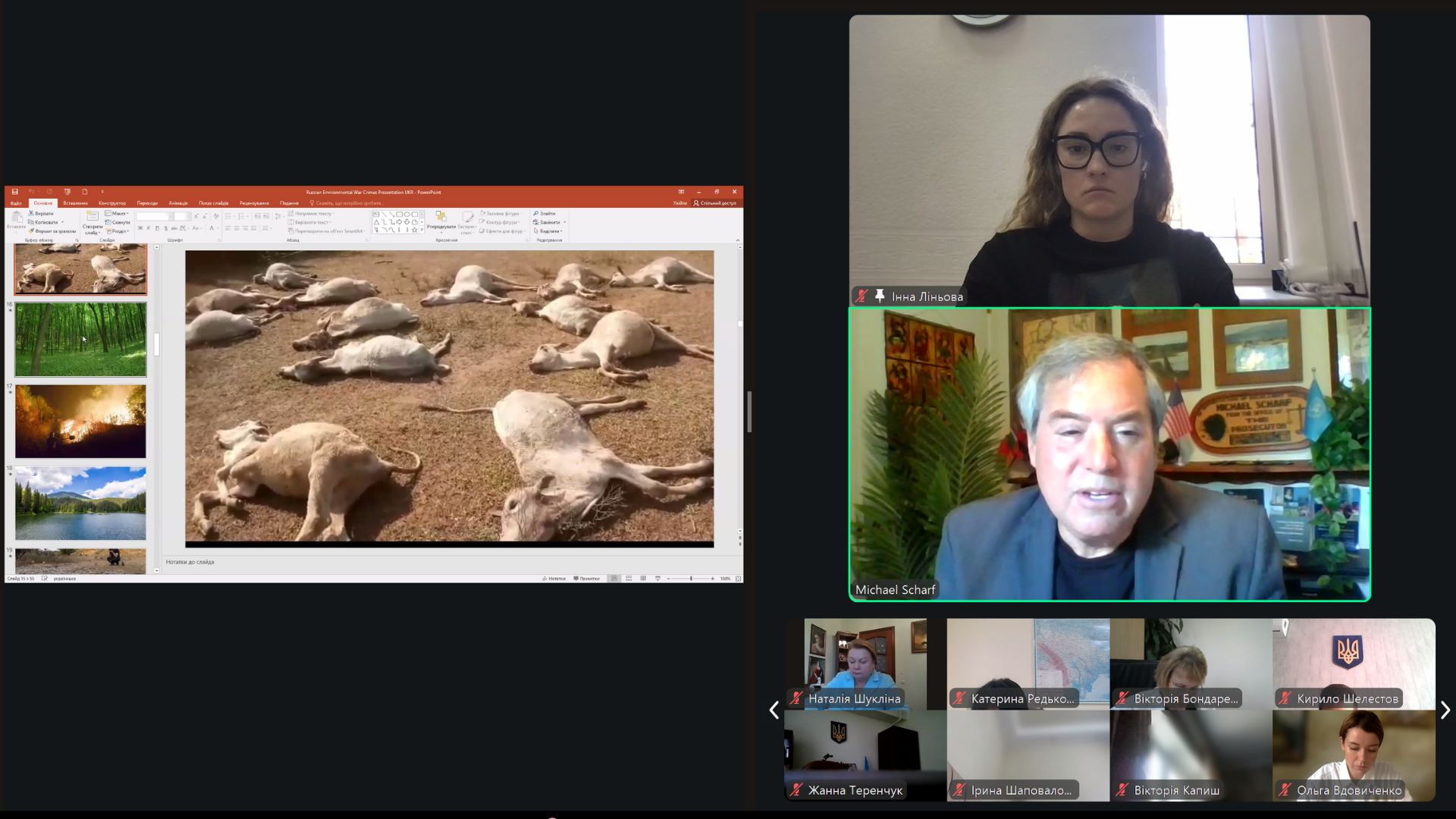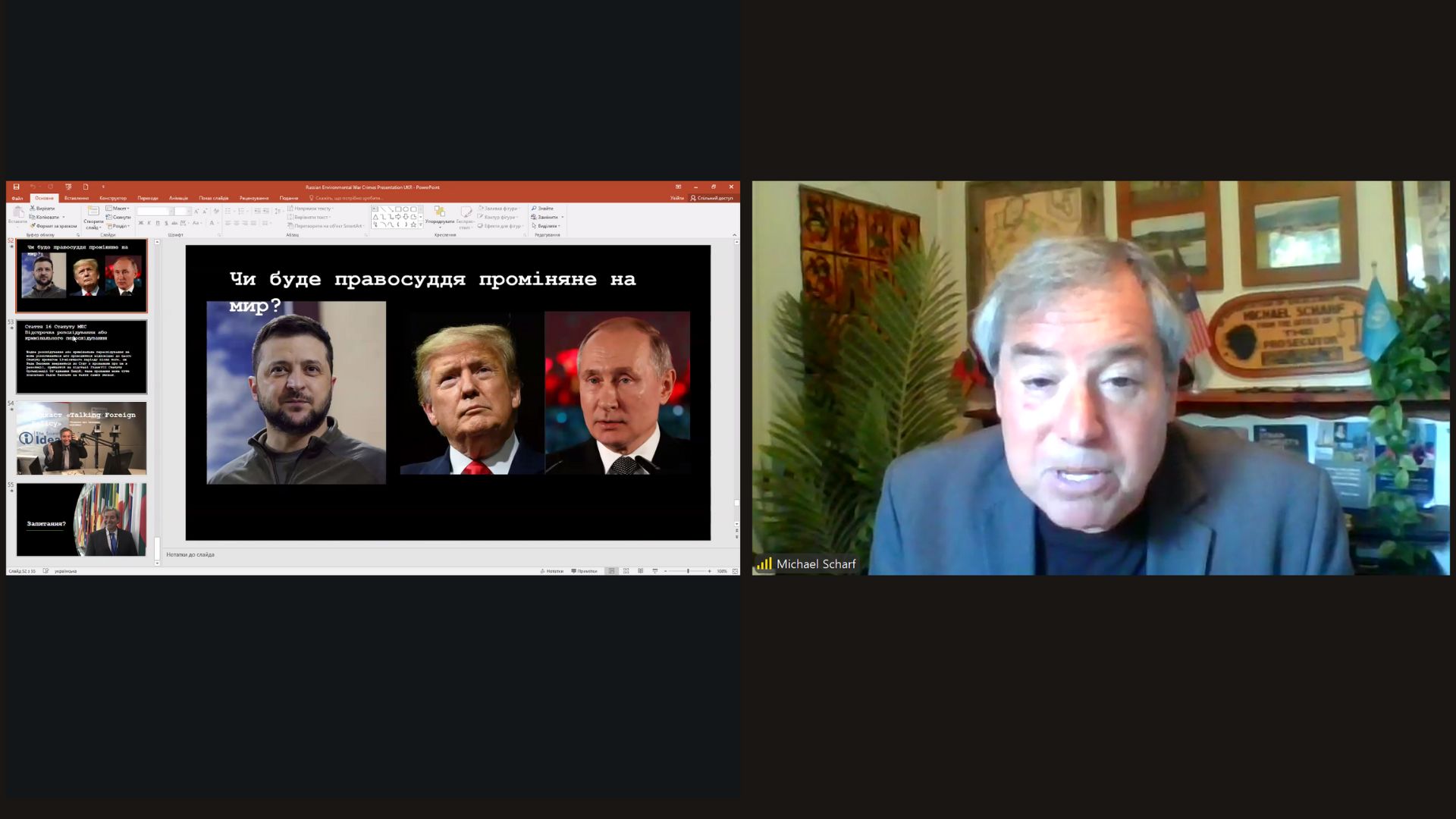The Crime of Ecocide and Command Responsibility: Key Takeaways from the Training for Judges
On 19 September 2025, a training dedicated to the crime of ecocide was held, organized by the National School of Judges of Ukraine at the initiative and with the support of the Ukrainian Bar Association (UBA) and the International Bar Association (IBA). The event brought together nearly 200 participants.
The purpose of the training was to gain a comprehensive understanding of the crime of ecocide, analyze its similarities and differences with war crimes, review the current state of legal regulation at both the international and national levels, identify potential subjects of responsibility — states, corporations, and individuals — and discuss the types of environmental harm and methodologies for assessing ecological damage.

Moderated by Oksana Mazur, Senior Research Fellow at the National School of Judges of Ukraine, PhD in Law, Associate Professor.
The trainers in the workshop included:
- Michael Scharf, Dean of the Case Western Reserve University School of Law (2013–2024), President of the American Branch of the International Law Association
- Olga Vdovychenko, Judge of the Holosiivskyi District Court of Kyiv
- Mykola Mazur, Judge of the Grand Chamber of the Supreme Court, PhD in Law, Associate Professor
- Olga Bryzanska, Head of the Analytical and Legal Work Department of the Supreme Court’s Criminal Cassation Court, PhD in Law
- Viktor Checherskyi, Head of the Specialized Environmental Prosecution Department, Office of the Prosecutor General, Doctor of Juridical Sciences, Associate Professor
- Andrii Tkachenko, Head of the Department for Crimes Committed in the Context of Armed Conflict, Office of the Prosecutor General
- Hanna Vronska, Judge of the Supreme Court in the Cassation Commercial Court.
Michael Scharf spoke about the prosecution of Russian war crimes against the environment in Ukraine in the international context. He recalled the precedent of the Iraqi Special Tribunal in the case of Saddam Hussein, where the leader was held accountable for ordering the destruction of the city of Al-Dujail. This example, according to Michael Scharf, demonstrated that when troops act under orders, responsibility may lie not only with the direct perpetrator but also with the commander or political leader.
In this context, he elaborated on the concept of command responsibility enshrined in international law. Under the Geneva Conventions, commanders are obliged to train their troops to avoid war crimes, to respond to known or foreseeable violations, and to prevent them from being committed. “If a commander fails to perform even one of these duties, he may be held accountable,” the expert emphasized, adding that in Ukraine a relevant law was adopted only last year, which creates additional challenges in prosecuting crimes against the environment.
Among the examples, he mentioned attacks on nature reserves and national parks, as well as the deliberate flooding of mines as a method of causing long-term environmental damage. The speaker paid particular attention to the destruction of the Kakhovka Hydroelectric Power Plant, the consequences of which he compared in terms of environmental devastation to the Chernobyl disaster. Michael Scharf emphasized that this case may become pivotal for prosecution before the International Criminal Court and noted that twelve teams of Ukrainian prosecutors are already working to prepare materials for judicial proceedings.
He also addressed the issue of the “defense of military necessity,” which may be invoked by suspects in war crimes against the environment. According to the expert, this argument can only be considered legitimate if the attack was directed at a genuine military objective and carried out proportionally. He further recalled Article 33 of the Rome Statute of the International Criminal Court, which does not recognize compliance with manifestly unlawful orders as a defense.
Michael Scharf also touched upon the issue of in absentia trials. He explained that in such proceedings the accused are physically absent from the courtroom, but their interests are represented by lawyers. According to the speaker, these trials serve several important functions: they establish a historical record of events, they provide victims with the opportunity to feel that their testimony has been heard, and they restrict the ability of suspects to travel internationally, even if they remain in their own country.

At the same time, the expert noted that during potential peace negotiations there may be a temptation to forego prosecutions in exchange for ending the war. He stressed that history shows that peace without justice never lasts long. Victims who do not see justice restored eventually seek it on their own, which makes peace fragile and unstable. Therefore, in Michael Scharf’s view, prosecutions must be swift and determined in order to preserve the possibility of combining peace and justice.
The Ukrainian Bar Association (UBA) extends its gratitude to the National School of Judges of Ukraine and the International Bar Association (IBA) for organizing and conducting such a substantive training, as well as to all participants for their active engagement and interest in the topic.
